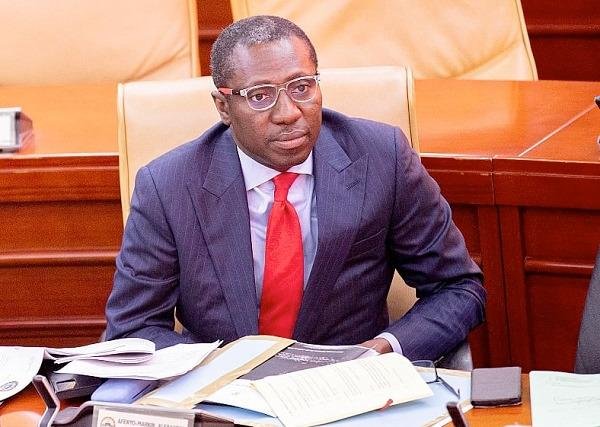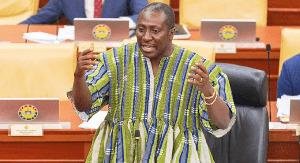News
Election 2024: Mahama leads with 51.1% as Bawumia trails at 37.3% – Global InfoAnalytics

A final field poll conducted by Global InfoAnalytics shows John Dramani Mahama (JDM), the opposition leader of the National Democratic Congress (NDC), maintaining a commanding lead over his closest competitor, Vice President Dr. Mahamudu Bawumia (DMB) of the ruling New Patriotic Party (NPP).
The poll reveals that Mahama is in the lead with 51.1% of the committed voters, while Bawumia trails with 37.3%. Independent candidates Alan Kwadwo Kyeremanten (AKK) and Nana Kwame Bediako (NKB) hold 4.1% and 6.2%, respectively, with other candidates securing 1.3%.
Under the unweighted likely voters’ model, Mahama still leads with 49.3% compared to Bawumia’s 35.9%.
The poll highlights voter apathy as a significant challenge for the NPP, with 16% of potential non-voters identified as NPP supporters. By contrast, the NDC sees only 3% of its supporters in this category. Floating voters and those who declined to disclose their affiliations make up 38% and 39%, respectively, of those who say they will not vote.
Mahama holds a key advantage over Bawumia among floating voters, leading by a substantial 31-point margin (54% to 23%), and a further 18-point lead among voters who refused to disclose their party affiliations. Additionally, Mahama has seen a growing edge among first-time voters, leading Bawumia by 46% to 38%, an improvement from a tied result in July 2024.
A worrying trend for Bawumia is a decline in support among Muslim voters, a key demographic for his campaign, with his backing in this group dropping by nearly 4% between July and October 2024.
The poll also reveals shifts among voters who supported President Nana Akufo-Addo in 2020. While 70% of those voters remain loyal to Bawumia, 19% have switched to Mahama, with 5% each moving to Kyeremanten and Bediako. In key regions like Greater Accra and Central, 20% and 37% of 2020 NPP voters have shifted their support to Mahama.
Nana Kwame Bediako and Alan Kyeremanten are emerging as significant contenders, especially in the Eastern and Ashanti regions, where their combined presence is eroding Bawumia’s dominance. In the Ashanti region, where the NPP aims to secure 85% of the vote, Bawumia remains at 66%, with Mahama at 22%, Bediako at 7%, and Kyeremanten at 4%.
Mahama is also outperforming his party’s parliamentary candidates in 56 of the 111 constituencies surveyed, while Bawumia trails his candidates in 79 constituencies, reflecting the potential impact of Kyeremanten and Bediako on the ruling party’s fortunes.
The poll underscores the central issues influencing voters ahead of the December elections: the economy, jobs, and education. The economy remains the top concern, with 70% of respondents citing it as their primary issue, followed by jobs (62%) and education (48%). Voters are also influenced by the current economic conditions, with 55% highlighting them as a key factor, followed by party performance (40%), candidate credibility (34%), and party manifestos (28%).
On manifesto favorability, the NDC leads the NPP by a 14-point margin, with the NPP’s manifesto holding a net favorability rating of +6 points.
The poll also reveals discontent with the country’s direction, as 62% of voters believe Ghana is heading in the wrong direction. This sentiment is strongest among NDC voters (88%), floating voters (74%), and supporters of other parties (76%). In contrast, 64% of NPP voters believe the country is on the right track.
President Nana Akufo-Addo’s job performance approval stands at 36%, with 59% disapproving. The government’s overall performance is rated as poor or very poor by 49% of voters, while 30% rate it as good or very good.
As the December elections approach, Mahama’s lead in key regions and among crucial voter demographics positions him as the front-runner, while Bawumia and the NPP face increasing challenges, particularly from independent candidates and voter dissatisfaction with the economy.
In terms of regional dominance, Mahama leads in 12 regions, adding the Bono region to his column since the July poll. He now commands Greater Accra, Central, Western, Western North, Bono, Bono East, Northern, Savannah, Upper East, Upper West, Oti, and Volta regions. Bawumia, on the other hand, leads in the Ashanti, Eastern, Ahafo, and North East regions.
Source:Citinewsroom.com
News
Afenyo Markin criticises Police over handling of Abronye’s case

The Minority Leader in Parliament, Alexander Afenyo Markin has raised concerns about the handling of the arrest and detention of Bono Regional Chairman of the New Patriotic Party (NPP), Kwame Baffoe, also known as Abronye.
According to him, the police invited Abronye on Monday, September 8, and he honoured the invitation with his lawyers.
He said Abronye submitted himself to interrogation but, within an hour, was taken into the custody of the National Intelligence Bureau (NIB).
The Minority Leader questioned why the police, who were investigating the case and had their own holding cells, decided to send someone being investigated for a misdemeanor to the NIB.
He intimated that checks confirmed that the NIB was not investigating or interrogating Abronye, but had only kept him because the police requested it.
He wondered whether the move was meant to punish Abronye, stressing that the police detained him the whole of Monday night and Tuesday morning, before presenting him to court on 9th September.
The Minority Leader added that in court, the police asked for Abronye to be remanded to allow further investigations, and the judge granted the request.
He however described it as unfortunate that the police handcuffed Abronye when he was leaving the court.
By: Jacob Aggrey
News
Power Is like an ice block, it melts from day one – Afenyo-Markin warns

The Minority Leader in Parliament, Alexander Afenyo-Markin, has urged political leaders to learn from past mistakes and handle power with caution.
Speaking at the Accra Circuit Court for Abronye DC proceedings, Afenyo-Markin admitted that governments in the past, including his own side, had made mistakes and were not perfect.
He warned that if such mistakes were repeated, the country could be heading in the wrong direction.
He pointed to the removal of a former Chief Justice as an example, saying a report was prepared even before a committee hearing was completed.
According to him, such actions make it difficult to control extremists and hardliners in Ghana’s politics.
The Minority Leader stressed that power is temporary and must be exercised responsibly.
“Power is like an ice block, When it’s given to you, it starts to melt from the very day,” he noted.
By: Jacob Aggrey













